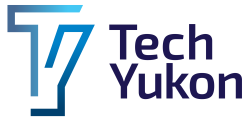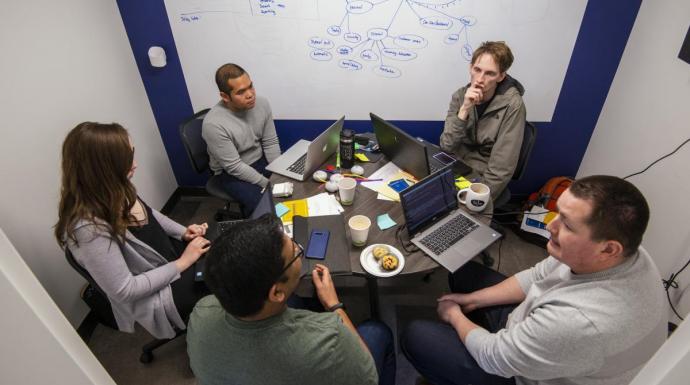To engage with both the local tech and business community, TechYukon, in collaboration with Yukonstruct and Northern Vision Development (NVD), hosted a Hackathon entitled “Hacking Business”. The premise of this Hackathon was to give local businesses an opportunity to present a challenge that they were faced with and get the local community to hack solutions for that challenge. The goal for TechYukon was to introduce local businesses to local tech talent and to inspire the hackers to build a business of their own from the solutions they developed. A total of 14 hackers from various professional backgrounds participated in the event and 4 local businesses, including NVD, provided challenges to hack on. The following challenges were pitched at the Hackathon:
Gray Management Systems
How can we reduce consumption more effectively by using less fuel, electricity, water, and, space?
Yukon Berry Farms
Can you help a berry farm and local food & wine producer build an app to track operational records for their Canadian Food Inspection Agency (CFIA) and Certified Organic certifications?
Solution: Team “Berry Good” designed a prototype of the requested app that used barcodes to track harvested berries

Air North, Yukon’s Airline
New regulations went into effect on 15th December that require all airlines to push notifications to all affected passengers, in their preferred method, for any delay over 15 minutes. The communications have to be pushed out every 30 minutes until a new departure time is set and so on. One of the bigger challenges is internal communications and creating accountability and logging crew & staff activities in the face of delays. How would you design a communications system that addresses this challenge?
Solution: Team “Air Notify” created a delay management system that gives Air North the ability to instantly notify both staff and customers about delays.

Northern Vision Development
Responsiveness in our near-term management and longer-term planning and budgeting are dependent on being able to make accurate forecasts of local tourism numbers. Daily, weekly, and monthly data inputs (e.g. flights, hotel occupancy, currency fluctuations, etc.) form a model that enables us to better predict and forecast these numbers. How can we build a predictive model?
Solution: Team “HIIF” created a hotel identity and intelligent forecast platform that uses machine learning to predicts cancellation rates for hotels which can help with forecasting occupancy rates.

Overall the event was a great success, prizes for the Hackathon were donated from Air North, NVD, Yukon Brewing, and Firebean Coffee Roasters. First place went to team Berry Good, followed by team Air Notify which took second place and team HIIF which took third.

